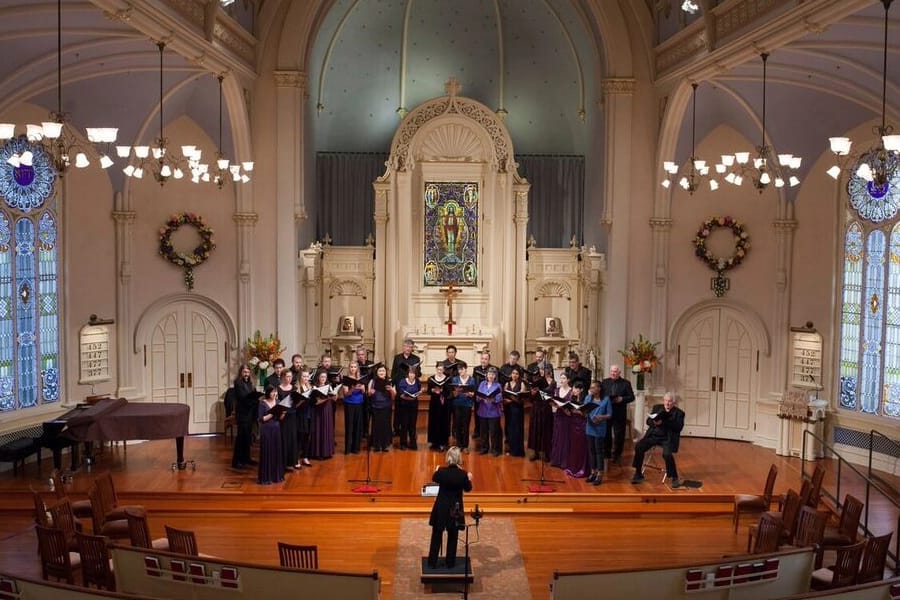
Sacred and Profane is celebrating its 40th season with an anniversary program of concerts this weekend in Berkeley and San Francisco (and on the 19th in Gualala). Artistic Director and conductor Rebecca Petra Naomi Seeman says they’ll be singing the work by Benjamin Britten that gave the ensemble its name, as well as a commissioned piece for the occasion by Swedish composer Karin Rehnqvist.
There’s more information about the concerts at the Sacred and Profane website.
Seeman has been leading them for 14 years, and says it’s been a long time since they performed ‘Eight Medieval Lyrics for Unaccompanied Voices’: “Benjamin Britten’s final piece for choir, called Sacred and Profane, and that is our namesake work, so it seemed important to do that for our 40th anniversary concert… I think the choir did it last in the ’70s sometime, or possibly in the early ’80s, but it’s also a piece that we’ve been working on for many months, and it’s been very exciting and thrilling to see the choir reach the heights that are required for this work.” A solo quintet of voices gave the original performance, and in these concerts they’ve decided to do four of the eight movements that way, and the other half with the full choir. Another milestone, which will end the concerts is a brand new work by Karin Rehnqvist, the subject of Seeman’s dissertation. It’s a piece specially written for the concert, called Songs from the North. “It’s a four-movement setting of mostly Inuit poems,” she says. “Two poems from the arctic circle of Greenland, and one poem from the Arctic Circle region of Northern Canada, Pelly Bay. There’s a lot of really beautiful uplifting, sort of ‘seize the day, this is the moment, if you long for something this is your time’… And then there’s also some really intense difficult material. We’re singing one text that deals with a massacre of a native community, and then lifting themselves up from the ashes from that… She uses a lot of Swedish folk music idiom throughout the piece, and also started to incorporate some elements of lament, which I’ve seen in a lot of her works for solo voice, but not so much for choir until now. So this feels like it’s starting a new stage for her in terms of the choral work that she writes, and I’m more than thrilled that we got it.”







